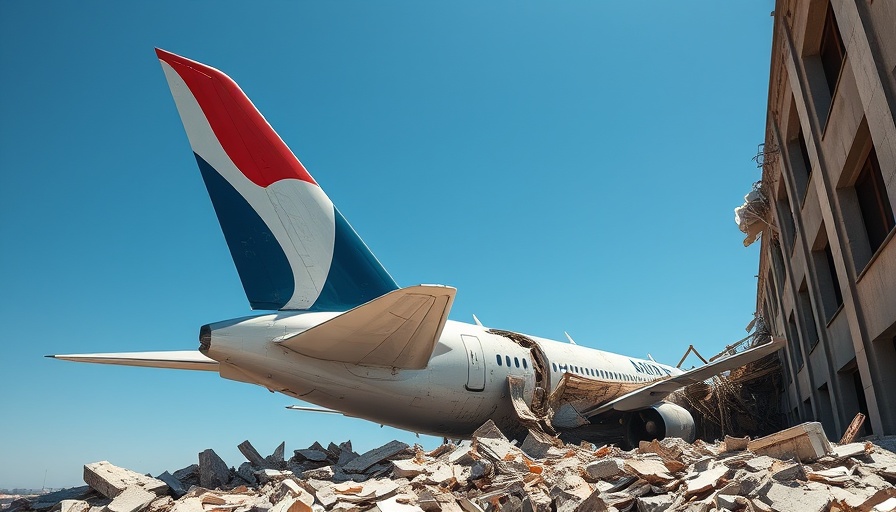
Tragic Air India Plane Crash Claims Over 240 Lives
In a devastating aviation disaster, an Air India Boeing 787-8 Dreamliner crashed just moments after taking off from Ahmedabad, heading for London. This tragedy has resulted in the unfortunate loss of at least 241 lives, including passengers and crew members, marking it as one of the deadliest plane crashes in India's history. The flight, designated AI171, was scheduled to arrive at Gatwick Airport in London, but it met a tragic fate shortly after takeoff.
Shocking Survivor Story
Amidst the horror of the crash, the survival of one passenger, British national Vishwashkumar Ramesh, has captivated the world. Ramesh described feeling a loud noise just 30 seconds after takeoff, which he likened to a train colliding. The circumstances surrounding his survival remain unfathomable, as he recounted watching the chaos unfold from his seat before escaping the wreckage. His account serves as a poignant reminder of the fragility of life and the randomness of survival during such catastrophic events.
Investigation and Repercussions
The Indian government has launched an investigation led by the Aircraft Accident Investigation Bureau (AAIB) to determine the cause of this tragic crash. Prime Minister Narendra Modi expressed his sorrow, calling the incident "heartbreaking beyond words," emphasizing the collective grief felt nationwide. While the exact reasons for the crash remain unclear, Boeing has stated that it is prepared to assist in the investigation, reiterating its commitment to aviation safety.
Understanding Aviation Safety Protocols
Such catastrophic crashes provoke discussions about aviation safety and regulatory measures. The Boeing 787, known for its advanced technology and innovative design, prompted many to reflect on safety protocols in place. With an increase in air travel, especially after the pandemic, ensuring the utmost safety standards has become a topic of burning importance for both airlines and regulatory bodies.
The Global Implications
This incident has broader implications as it showcases the interconnectedness of global travel. With citizens from multiple countries aboard, including Indian, British, Portuguese, and Canadian nationals, the tragedy resonates internationally, igniting discussions on airline regulations, pilot training, and emergency preparedness protocols worldwide.
The crash not only highlights the urgent need for efficient strategies within the aviation sector but also calls upon leaders and communities to rally in support of the victims' families and survivors. Amidst this year’s safety concerns, it remains paramount to advocate for transparency, accountability, and improvement within the aviation industry.
 Add Row
Add Row  Add Element
Add Element 



Write A Comment